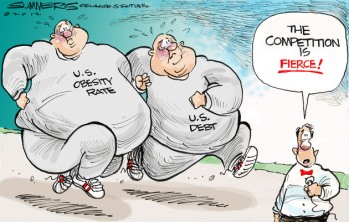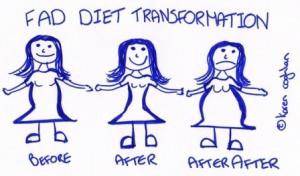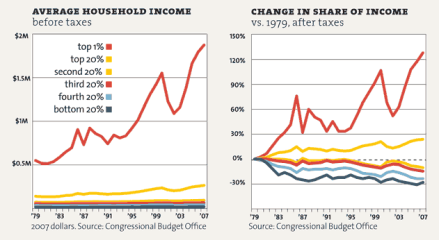The recent TOS obesity congress in Boston was an excellent opportunity to catch up with the latest research. While it is interesting to hear about what other people are working on, it is also interesting to note what isn’t trending so much.
Many areas of research have obviously come and gone from the limelight as we naturally go through cycles and phases in research, with some topics having considerably more longevity than others.
Short-lived topics with rapid cycles of boom and bust include things like new diets or exercise fads, something many (if not most) obesity experts got fed up with a long time ago. The basic rule here is that the more extreme the new diets are, the more volatile the cycle. Such strategies rarely make sense if you are genuinely concerned about obesity, even though they can stir remarkable amounts of curiosity in the short term. The science eventually catches up.
Obesity research is inevitably a mix of trending topics with shorter cycles, and less trendy but enduring topics that have withstood considerable scientific scrutiny over decades. While these long-lasting areas of research might not always be the most exciting for lay people, they arguably have a more robust potential for providing effective solutions.
For me, there was one such long-lasting topic I had hoped to hear much more about in Boston, namely the negative influence of low socioeconomic status. Obesity and poverty may appear to be a paradox but it was a long time ago, at least in developed nations, that obesity was a condition among the wealthy.
It is now well established that obesity is much more common in individuals at the bottom of the socioeconomic pyramid, and rare towards the top. This particular association is also noted for its strength and consistency across populations in developed nations. Since such associations are rare in obesity research, socioeconomic adversity could well be the strongest risk factor we have for obesity development, hence its long-lasting appeal to researchers.
When we investigate causes behind the obesity epidemic we can obviously point to the junk food invasion and increasingly sedentary lifestyles, for example, but we also need to be aware of the quite dramatic changes in wealth distribution, with financial inequality now at its highest level in seven decades.
So, since socioeconomic adversity is so well established as an obesity risk factor, the topic I wanted to hear much more about in Boston was why this association is so strong. In other words, what is it about being at the bottom of the socioeconomic pyramid that increases the risk of obesity so drastically?
While there were very interesting studies in Boston that touched upon the potential mechanisms, such as food insecurity, stress, junk food, mental health issues, addiction, lack of sleep, and malnutrition, I would have liked to have seen much more.
This is clearly an area where we can find many interesting pieces of the obesity puzzle and really develop our understanding of weight gain and body weight regulation. This work clearly needs to be multifactorial in nature and not just include experts on socioeconomics, but also experts on social interaction/family dynamics, psychology, emotion regulation, behaviour and lifestyle, diet and nutrition, sleep, fitness, metabolism, endocrinology, immunology, inflammation, genetics, epigenetics, and so on.
Once we start to identify the drivers of weight gain among the socioeconomically disadvantaged, the road to some much needed progress in terms of both treatment and prevention of obesity should be considerably wider.
Erik Hemmingsson







